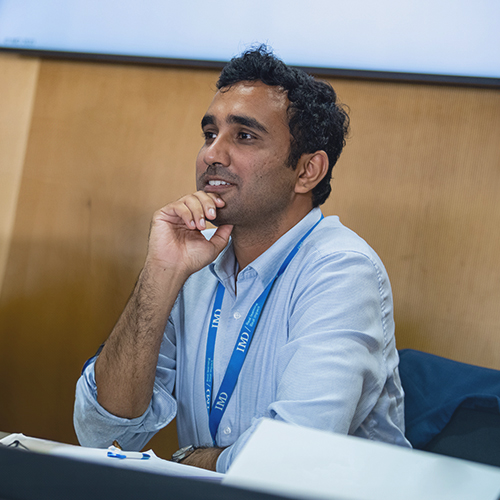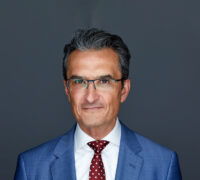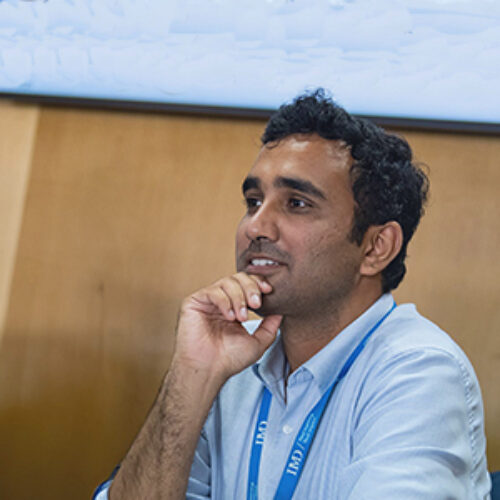
Digital sustainability: it pays to be a leader, not a laggard
Companies that excel in both digital and sustainable transformation attract a stock market premium, according to research. So, how do you tap into that value? ...

by Arturo Bris Published 2 December 2023 in Sustainability • 5 min read
The Climate Policy Initiative estimates that total climate funding needs to meet $8tn by 2030. Questions abound about how financial sponsors can support achieving climate transition and profitability at the same time. How quickly, it is asked, can we scale the financing that is needed and ensure that it reaches the tech, projects, and asset classes where it can make the most difference?
One thing is for certain: looking to the private sector to deliver the vast majority of the money needed – as is being done – is just not going to fly. Instead, companies need to innovate with new business models and the only way they can get there is through regulation. Otherwise, governments need to chip in and, as private-sector investors put it in a somewhat cynical way, “de-risk” the portfolios
Can we pursue climate and sustainability goals without sacrificing returns? Researchers have been asking this question for the last five years. The common view used to be that if you invest in a sustainable fund, you earn higher returns. I think it is safe to say we now know this is not the case, even in a market-risk-adjusted way.
We have, however, moved to another extreme: this idea that returns will need to be sacrificed but for a different reason: purpose, the common good, the “right” thing to do. This take is problematic not in its extremity per se but because it calls for a new type of economic system that doesn’t exist – yet.
I believe we should, instead, see carbon investing – CO2, oil, gas, the lot – as additional risk factors. Leaders might try saying, “We may decide to invest in a sustainable fund with impact, but this means we are giving up return and risk. We may end up better off but, equally, we may be worse off.”
We must realize that impact investment presents trade-offs; it’s about either rejecting or taking on additional risks.
The theory is one thing but there are multiple players with different interests operating in the world of impact investing, lending extra complexity. “We have to live with the reality that the climate agenda is founded on policy. [Add to this that] we are living in one of the most complex – though not necessarily the most dangerous – geopolitical times because there are more relevant stakeholders and there is more interconnectedness,” says Neil Brown of global investment firm KKR.
For one, banks get involved, looking at how they can support efforts. Sophia Oumary of First Abu Dhabi Bank says they ultimately look to provide more of a long-term vision than public markets, and to bring much-needed structure to projects, always circling back to the goal of making them more flexible.
Let us remember that the tax payers are financing a lot of these blended finance projects.- Arturo Bris

Manage social, political, and regulatory dynamics to accelerate your sustainability transformation.
In addition, investment and risk management advisors – the likes of BlackRock – hone in on blended finance, say, in a bid to see how more private capital can be mobilized in emerging markets. The creation of a massive global government fund to support such efforts has revealed itself to be one of the pièces de résistance of the COP28 summit in Dubai. Naturally, these advisors have conflicting interests: investing to make a return versus investing for doing good. Let us remember, too, that the tax payers are financing a lot of this.
There is a tendency to conflate ESG investing and climate investing, but they are not one and the same. Too much throwing around of the term “sustainability” without enough substance attached to the content in which it is used might be partly to blame.
Brown puts it like this: “ESG is the ‘how you do it’ and is infused into corporate processes on investing and reporting on said investments. Climate investing touches on major themes of our times and presents rich opportunities to put capital behind investments that will have an impact.”
Whilst my view is an academic one, I do manage a pension fund. If I made the GDP of Switzerland my financial objective of this pursuit, I would fail my fiduciary duty; my point is that my mandate is to preserve the sustainability of the pensions, which means my priority is to generate returns while controlling risks.
I invite you to reflect on some words from a recent presentation I attended, where the CEO of one of the largest logistics companies in Europe was asked why he hadn’t forayed into the world of electric trucks to counterbalance his fuel-driven fleet. He responded: ‘I would lose 3% of my profit margin every year and I would be fired by my board.’ Almost certainly for fear the returns would be insufficient or come only in the very long run.
This article was inspired by a panel of experts speaking at a panel convened by First Abu Dhabi Bank at the COP28 conference in Dubai.

Professor of Finance at IMD
Arturo Bris is Professor of Finance at IMD. Since January 2014, he has led the world-renowned IMD World Competitiveness Center. At IMD, Bris directs the Boards and Risks, Strategic Finance, and Navigating Fintech Innovation and Disruption programs. He also previously directed the flagship Advanced Strategic Management program between 2009 and 2013.

Manage social, political, and regulatory dynamics to accelerate your sustainability transformation.

17 July 2024 • by Michael R. Wade, Evangelos Syrigos in Sustainability
Companies that excel in both digital and sustainable transformation attract a stock market premium, according to research. So, how do you tap into that value? ...

11 July 2024 • by Stéphane J. G. Girod in Sustainability
A series of watershed events forced CHANEL out of its comfort zone, culminating in the launch of CHANEL Mission 1.5°. With this new strategy, the luxury fashion house embarked on a journey...

5 July 2024 • by Avni Shah in Sustainability
Creative industries have a key role to play in creating positive social change. Here are six key insights to help them achieve their goals. ...

3 July 2024 • by Richard Baldwin, Salvatore Cantale in Sustainability
The EU Corporate Sustainability Reporting Directive (CSRD) will impose comprehensive and standardized sustainability reporting responsibilities on firms, adding unprecedented complexity to mergers and acquisitions. ...
Explore first person business intelligence from top minds curated for a global executive audience